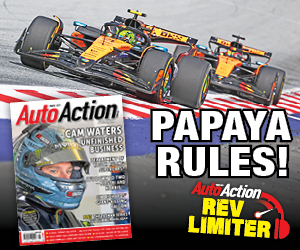THE COST OF RACING: HYUNDAI EXCELS
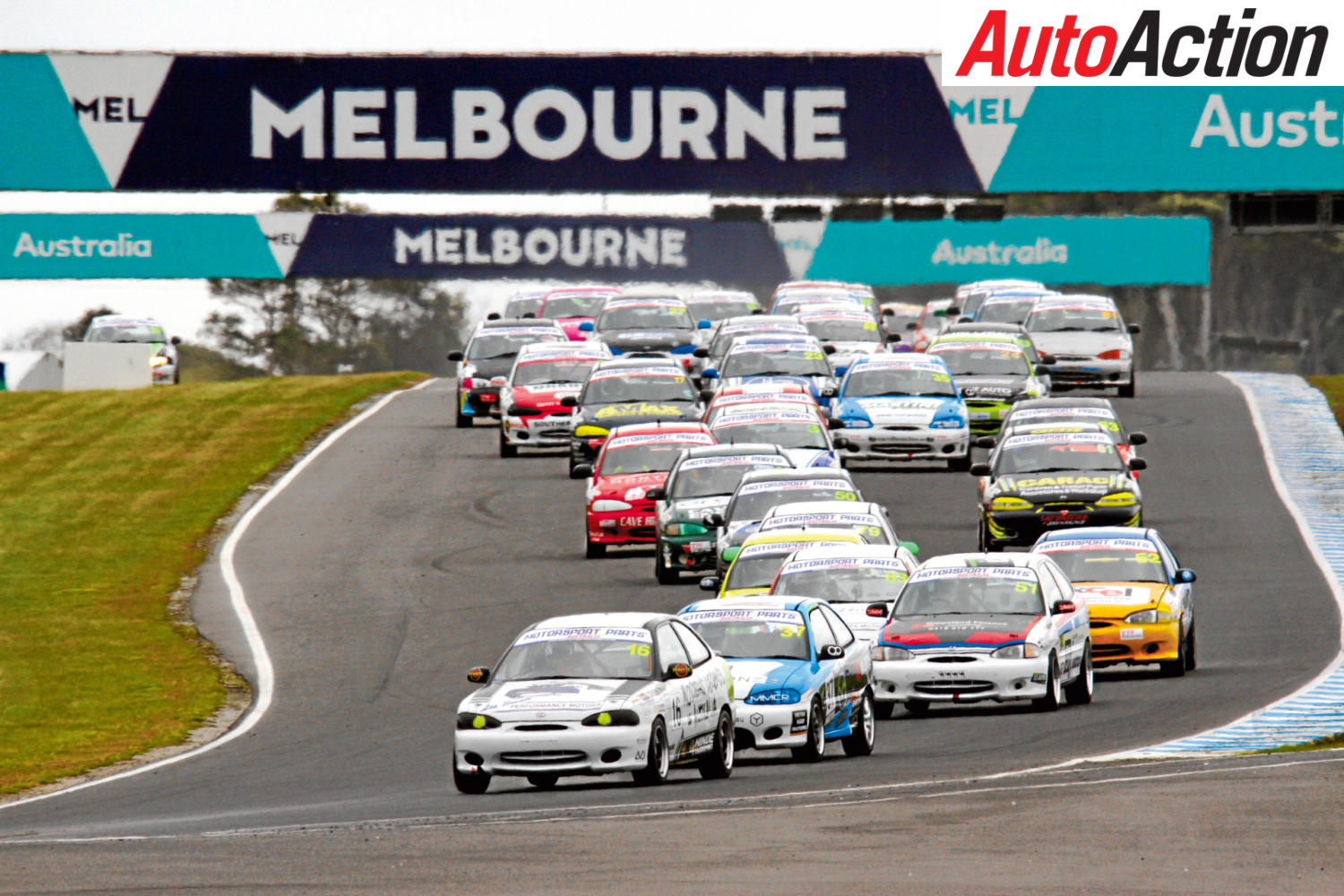
The Hyundai Excel follows in the same vein of previous budget one-make categories including Daewoos, HQs and Geminis, but actually how cheap is it? Heath McAlpine investigated the costs associated in going Excel racing.
Images: Supplied/Revved Photography
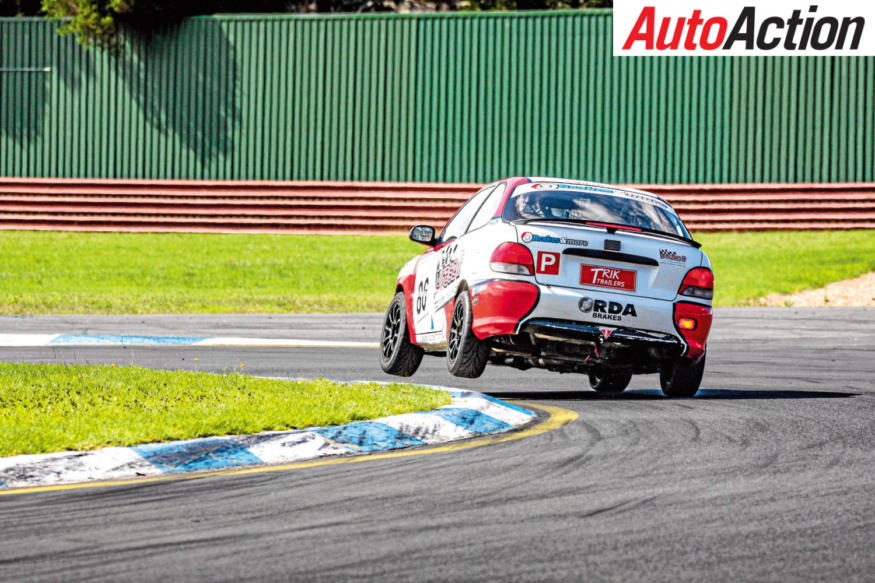
This Auto Action feature series is designed to provide a guide on costs and accessibility to a variety of categories, kicking off with the burgeoning Hyundai Excel class.
It’s hard to ignore this category as it is the most populous in the country with fields continuing to swell. In fact, Victoria was one of the last states to come on board, but it’s not a surprise to watch 60-car fields battle at Phillip Island.
Popularity of the class is due in most part to its rather basic regulations that don’t allow telemetry and keep the Excels at a moderately stock-level, leaving it mainly up to the competitor to decide their expenditure.
Just in any other motor sport, this is the major difference and Excels are no exception as top-level cars are now changing hands for $30,000 on the used market, but that doesn’t mean there aren’t great cars at lower prices around.
Auto Action spoke to Hyundai Excel Association of Victoria treasurer Neville Blight, who provided a ball park figure surrounding the initial purchase of a suitable car. He stated that there were three levels of Excels on the market, top-level priced at $28,000-$30,000 that feature the best of the best parts, a median at $12,000-$15,000 and a basic car at $6,000-$8,000.
If building an Excel is more the go, then a used one can be bought for between $200-$600, then two choices of cage can be chosen, either a basic AGI Sport bolt-in cage starting at $1800 or a National-specification cage priced at $3000
“Just buy them out of the market usually off Ebay, Trading Post, Gumtree or word of mouth,” Blight explained.
“You can pay anywhere from $200-$600 for a car, which is the cheapest part of the whole thing. Some of the cars are given to you, because at the end of the day the old Excel is not worth two bob, no one is going to roadworthy them to put back on the road. There is really no market for Excels whatsoever other than us.”
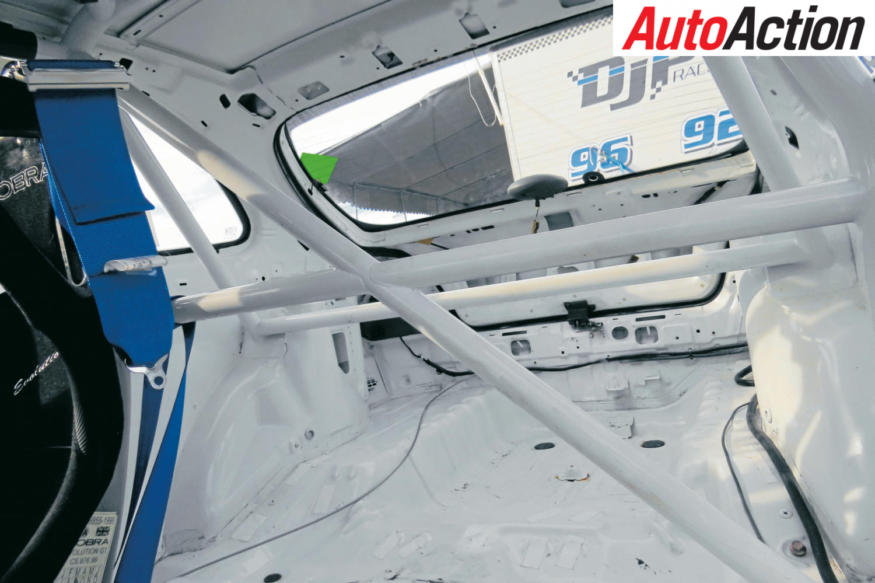
Blight warned the market for used Excels is as much buyer beware as it is in the road-going market, so a purchaser must be mindful of its history and who constructed it.
“Cars become available because people move on and it’s a great training category so there is a strong used market,” Blight told Auto Action.
“Much like a road-car, it depends on the how the quality of the build is in the first place as to how much its worth so the price ranges from $6000-$28000. That goes for where it’s come from, you can buy one for $6000, but the Excel may have been knocked around and was never built nicely.”
Next is an engine, which is where the price has really risen thanks to the research and development taken out by leading engine builders including Les Small, Cave Hill Engines and Rowse Motors. These engine-builders power many of the leading contenders with a new front-running powerplant costing $8,000, but if you were to build one in the garage at home $4000 forms a competitive basic engine revving to 6,500rpm.
There are also many ways that competitors can go about building an engine as Blight confirmed.
“A ‘wrecker’ engine can be installed, which means one that has around 200,000km on the clock, but can still form the basis of a competitive motor,” Blight said. “If you’re not a bad steerer, you won’t win a race, but you won’t be last either in among the mid-pack.”
Most competitors also fit a reconditioned head at a cost of $1,500 that further enhances the performance, while slight modifications can be made including shaving the head down, reseating the valves and boring out to its max size. These, however are strictly controlled in the formula, which is set to extend to the ECU that does remain stock.
The exhaust is free from the engine pipe leading to plenty of development in this area, the cost of this system can be between $500-$1,000. Air intake is also a non-control item as well.
Pump 98 octane fuel is used across the board, competitors can bring their own supply if the circuit management allows for it and around $50 worth should be enough to get through the weekend.
The Gearbox is the M5AF3 5-speed found in the road-going equivalent, which can be bought for $500 on the second-hand market or for the same price can be reconditioned. A trick that is utilised by some is to shim the gearbox to allow more drive out of both wheels rather than just the one, though the supposed advantage can also provide drag limiting its effectiveness.
Suspension has been a contentious issue for the class and one that is set to become a control component in the not too distant future. In Victoria, it initially stuck with a control formula through the use of the cheapest brand available XYZ, but to conform with the rest of the associations it recently allowed the fitment of MCA and Supashock suspension systems.
The suspension components include coilovers, shock absorbers, top hats, and bottom legs, while aftermarket anti-roll bars are allowed, but must be non-adjustable not exceeding 22mm in length at the front and 18mm in the rear.
Costings start at $1,300 for the XYZ set up with MCA and Supashock marginal on price at around $2,500.
Bushes and tie rod ends don’t necessarily need to be replaced if to a working standard as these cars are designed to complete many more kilometres compared to what is completed during a race weekend.
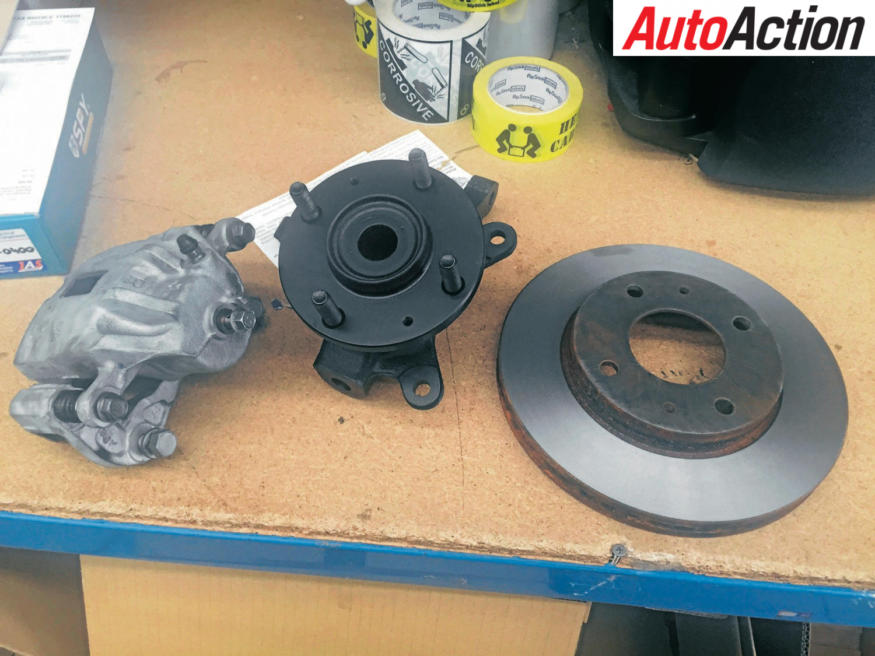
Brakes are another item carried across from the road-car although there is a choice within the Hyundai family of which to decide upon although negligible on price. The stock 242mm Excel stock rotors or 257mm Lantra J2 rotors can be utilised, however the performance is negligible even though the latter option is bigger, it weighs more, so it’s a purely an ergonomics driven choice.
Pads are free, but Bremtec and Winmax are the popular choices amongst the field, depending on the driver can last a full-season or can be changed after two or three meetings. Braided brake lines are also required costing around $120.
“You can’t change anything, just recondition and make it new,” Blight emphasised. “All new bearings and seals in the hubs, recondition the calipers whereas other competitors use the parts already on the car apart from the brake pads.”
Rims are free so it is up to the competitor on what price to pay for the 15×7” rims that can feature different offsets, while Federal produce the 595 RSR tyre that can last a full-season at $440 a set. Generally, the front running entries will fit new tyres every three meetings or so, though buffing has now been legalised (re: A frontrunning package breakout).
Expenses on the interior are minimal apart from the roll cage as telemetry is banned in Excel racing as are non-standard gauges, though a racing steering wheel can be used starting at $400.
A 9kg 105BE fire extinguisher is mandatory for the class with prices ranging from $78-$100, further safety items including a seat can be bought for anywhere between $600-$2,500 and belts add another $200. A window net is also compulsory costing $100, though telemetry is disallowed competitors can utilise free apps downloadable onto their smartphone to view lap times and sectors.
Installation of radios are up to the competitor’s discretion, as are GoPros, however the use of these is strongly advised and is sure to become mandatory in the future.
Servicing is easy in Excels and takes no more than a couple of hours unless there is accident damage of course. Blight told Auto Action he changes the engine and gearbox oil every two meetings, with a freshening of the powerplant after two-three seasons.
Shocks cannot be reconditioned and last two-three seasons depending on driving style.
Pre-event preparations take two-three hours and consist of a spanner check to make sure everything is in order.
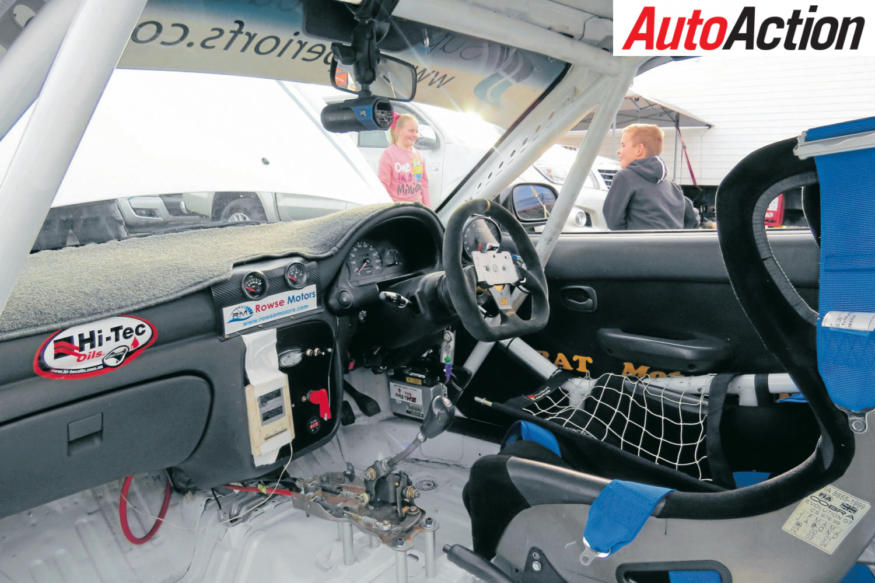
An 11-event calendar provides plenty of opportunity for a prospective competitor to race their Excel in a mix of sprint and endurance format. The Hyundai Excel Racing Association of Victoria season is split between four events run as part of the Victorian State Circuit Racing Championships, four Club Championship rounds and three ‘special’ weekends.
Generally, the Excels compete within the VSCRC at Sandown and Phillip Island, the entry fee being $420 for each round, the Club Championship is cheaper at $320, but through sponsorship one of these rounds will be subsidised dropping $100 of the fee. Entry to the endurance events is more expensive at around $500, but this can be split between two drivers making it very reasonable for the amount of track time.
There is an association membership, but as Blight explained this is handed back to the competitor thanks to supporters of the class.
“Club membership $100, but we try raise sponsorship,” said Blight. “The association owns the front guards and above of the windscreen. The series sponsors pay $600 a year and where possible we try to subsidise an entry once a year, giving the membership back.”
Generally, a weekend consists of a practice session, qualifying and three races. VSCRC rounds are three-day events, while events where the association can control scheduling are two-day or one-day meetings with plans to increase the number of the latter.
Due to its popularity many Victorian competitors also travel interstate contesting the annual Excel Nationals and the Bathurst 6 Hour support at Mount Panorama during Easter. These add considerable costs as Bathurst use an MRF tyre, which costs $520 a set and an entry fee of $2,350 alone.
However, due to the Excel’s simplicity the car can be run with minimal hands, in fact some competitors do it on their own. Most have mates that come along to help out, but also there is a strong comradery between each competitor that a helping hand is not too far away whether that be through fixing a mechanical problem or needing a part.
As for getting the Excel to and from the track, the majority of competitors do this on their own, limiting costs in that area.
All up across a weekend, the expected cost of running an Excel is around $1200 including entry fee, accommodation ($200-$300) and transport making it a frugal weekend of racing.
The category has also provided a starting point for a number of rising stars including Toyota 86 driver Jaylyn Robotham, TCR rookie Michael Clemente and second-generation racers Jett Johnson and Ben Bargwanna.
Not only that, but the likes of Steve Johnson, Jason Bargwanna, Paul Morris, Jonathan Webb, John Faulkner, Tim Slade and Steve Richards have either competed or are aiming to join in the near future.
This cheap formula continues to grow, but the key is to keep as basic as possible and not allow the budget required to skyrocket.
UPGRADE AS YOU GO
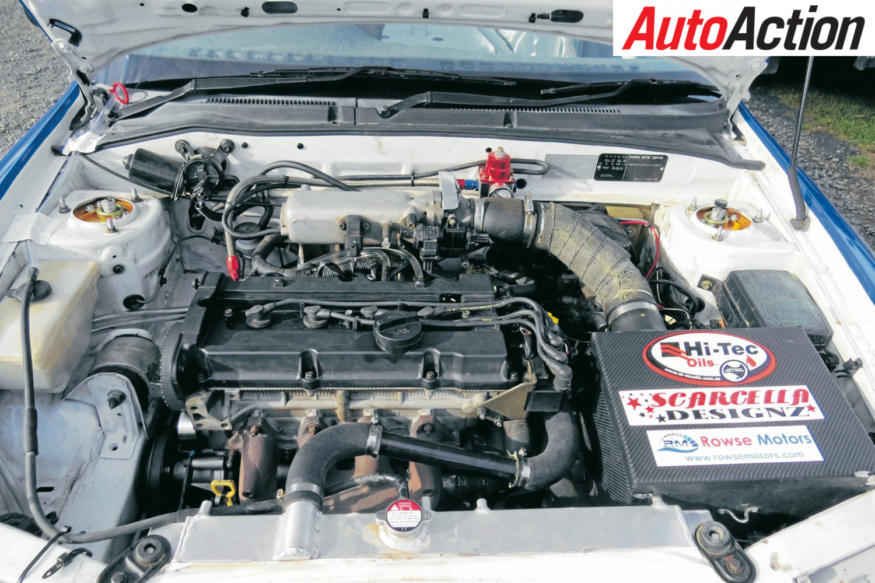
Excel Racing is one category where the competitor can control their spending and as a class that is based around development, it is easy to upgrade progressively.
Hyundai Excel Racing Association of Victoria treasurer Neville Blight has been through this process with son Nathan, a former Victorian Excel champion, and told Auto Action that it was not only a cost-effective way of racing, but also helped driving development.
”The first year is to learn the car and race craft, then as the improvement grows upgrades to the car can be introduce progressively,” Blight explained.
“It might start off as an $8,000 car, but after two-three years it might be worth $18,000 because of the upgrades that have been made.
“That’s the best way to go about it for anyone is to start off with the basics by learning how to drive the car, study the race craft because the Excel is front-wheel drive and most drivers have only driven rear-wheel drive.”
A FRONTRUNNING PACKAGE
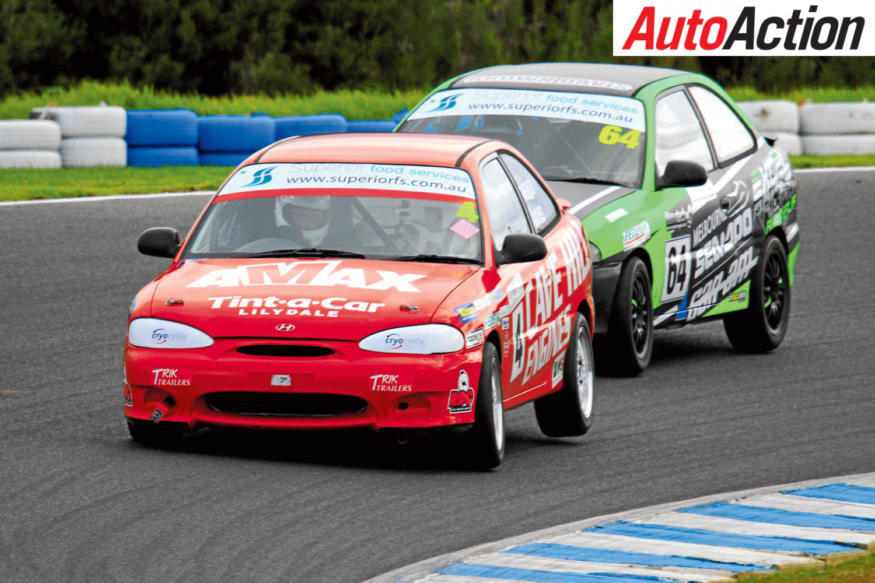
Adam Bywater is one of the current leaders nationally in Excel racing and having built eight of the Korean buzz boxes for competition is well versed in how to construct a well-developed example.
To run at the front, Bywater’s Excel features the latest Les Small-built engine that is priced at $8,000, a price that covers the countless hours of develop and research into new components such as the exhaust.
“The amount of hours we’ve spent to figure out a recipe, which at the moment we’re back doing another exhaust again and that takes hours of development,” explained Bywater.
The engine is a reliable unit, Bywater hasn’t encountered a mechanical fault yet and hopes that pattern continues.
“I’ve never actually blown an engine, we’ve had to pull it down at the end of the year for scrutineering checks, but it’s basically gone back together,” he recalled. “We’ve just built a new one now as the old engine was three-four years old.”
He services his Excel before each event with good synthetic fuel that costs $70-$80, while the $350 a set Winmax brake pads he uses last two meetings, for some drivers three and Bywater uses $120 of fuel across a weekend.
There is no radio fitted to Bywater’s Excel, but he does have a GoPro for judicial purposes.
New rules in terms of buffing the tyres have been accepted, which has decreased the life considerable, Bywater believing a set each round is an accurate estimate.
Suspension has been upgraded to the Supashock system, which on certain circuits hold a significant advantage over its opposition.
“We went to the Supashock and most of the front guys are on that now,” Bywater explained.
“The high-speed tracks like Phillip Island there won’t be too much of an advantage, but at a place like Winton it is worth another second, if not 1.5s-2s. In saying that the Supashock is double the price of the XYZ.”
At a state meeting, Bywater regularly has mates help him out, although he has run the Excel on his own and has received help from one of his fellow competitors when the brakes needed bleeding or stringing up the car for set-up.
The larger interstate trips are where the cost rises as astute preparation is made prior to the event and there’s days off from work to be considered as well as the normal fees associated with a race meeting.
“The biggest killers with interstate racing is the travel, accommodation and the time away from work because it’s a day either way for travel, so if you’re doing the Friday practice it’s five days away,” Bywater said.
“It’s the dyno time, making sure everything is right with the car, the set-up, stringing lining it to make sure it’s millimetre perfect.”
Bywater has used AGI and Brown Davis bolt in cages in the past, but with the next build may design his own.
“The bolt in ones are readily available and if you happen to crash a car, it’s a cheap way to re-shell and get back on the track,” he said.
The advance in development is rapidly increasing, but Bywater believes the category remains an inexpensive class.
“After every round if you don’t keep developing, you fall behind, but that’s part of motor racing,” Bywater explained.
“It’s still the cheapest, bang for buck it’s still good.”
HYUNDAI EXCEL – COSTS
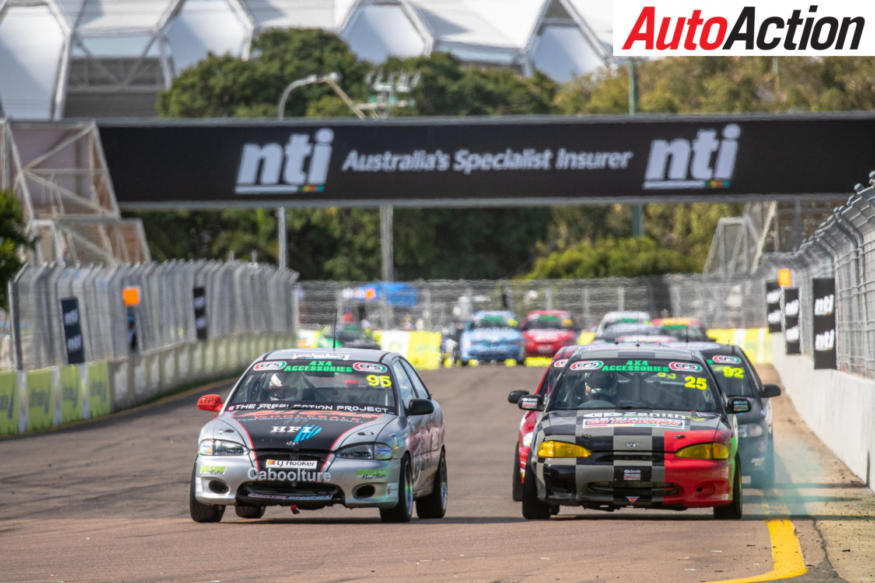
Donor Car: $200-$600
Roll Cage: $1,300 (basic bolt in)-$3,000 (National-spec bolt in)
Engine: $4,000-$8,000 (service before each event)
Suspension: $1,300 (XYZ)-$2,500 (Supashock)
Gearbox: $500 (reconditioned or replacement)
Brakes: Stock rotors and calipers, drum rear, pads free ($250-$350 a set every 2-3 meetings)
Exhaust: Free
Wheels/Tyres: 15×7”/Federal 595 RSR tyres $440 a set
Engine modifications: Reconditioned head ($1500), reseat valves, bore to max size, shave head
Fuel: 98 Octane pump fuel ($50-$120)
Entry Fees: $250 (Club Championship)-$420 (VSCRC)

